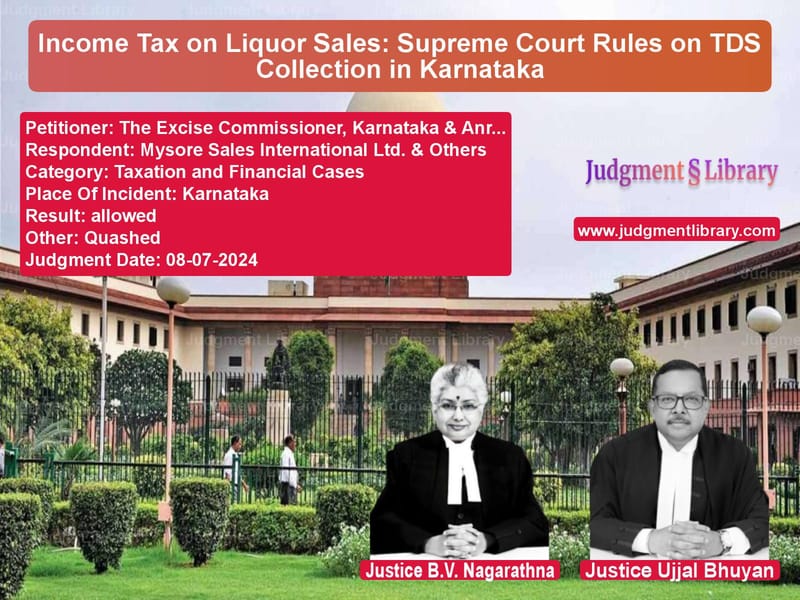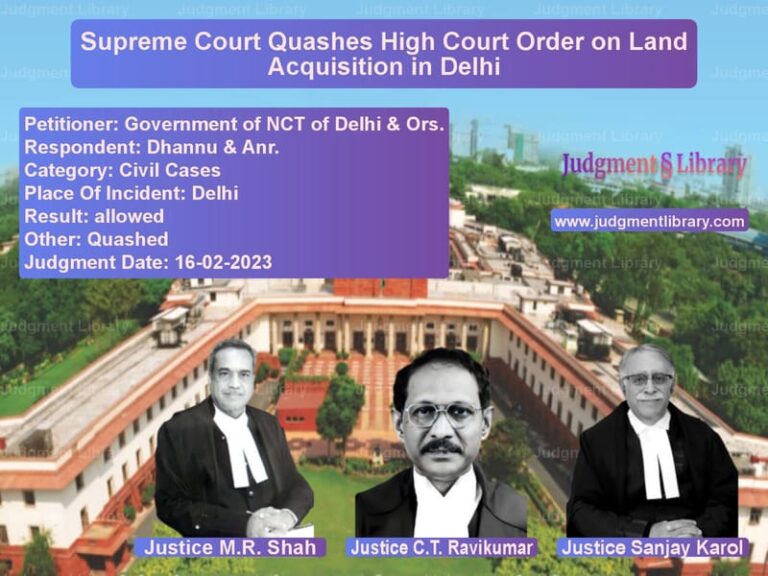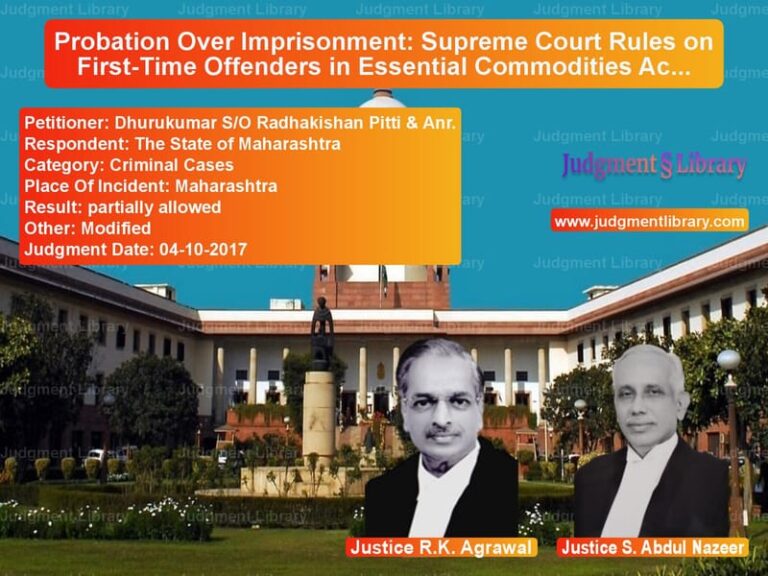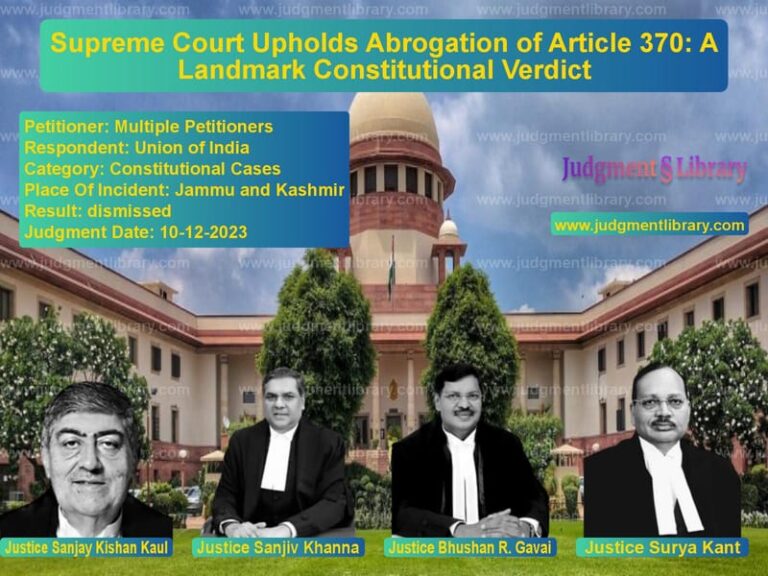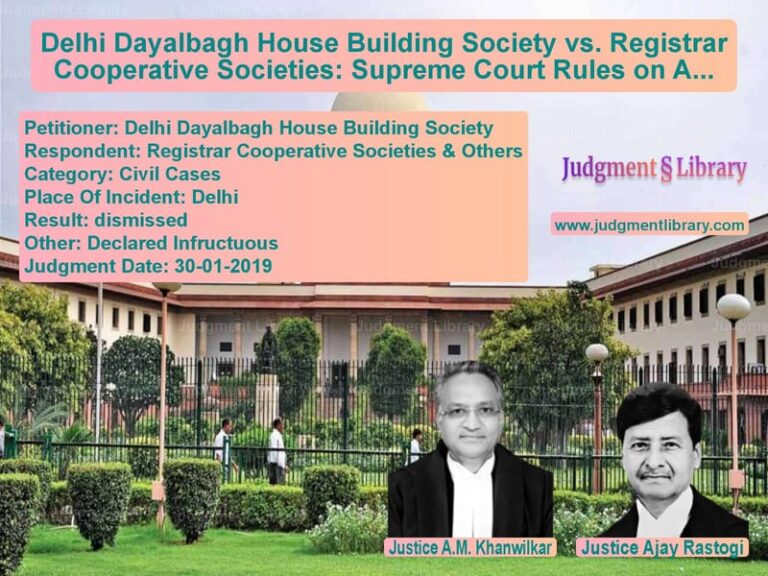Income Tax on Liquor Sales: Supreme Court Rules on TDS Collection in Karnataka
The Supreme Court of India recently delivered a significant judgment in the case of The Excise Commissioner, Karnataka & Anr. vs. Mysore Sales International Ltd. & Others. The case revolved around the applicability of Section 206C of the Income Tax Act, 1961, concerning the collection of tax at source (TDS) on liquor sales. The Court ruled in favor of the appellants, holding that Mysore Sales International Ltd. (MSIL) was not obligated to collect TDS from liquor vendors, setting aside previous decisions by the Karnataka High Court.
Background of the Case
The dispute originated when the Deputy Commissioner of Income Tax (TDS) in Bengaluru issued orders under Section 206C(6) of the Income Tax Act against MSIL for failing to collect TDS from liquor vendors for assessment years 1995-1996 to 2000-2001. The revenue department argued that MSIL was a “seller” and the liquor vendors were “buyers” under the Act, making TDS collection mandatory.
MSIL challenged these orders in the Karnataka High Court, which ruled against them. The High Court held that liquor vendors were “buyers” under Section 206C and MSIL had a duty to collect TDS. The case then reached the Supreme Court.
Key Legal Issues Considered
- Was MSIL liable to collect TDS under Section 206C of the Income Tax Act?
- Did liquor vendors qualify as “buyers” under the definition in Section 206C?
- Did the Karnataka High Court err in dismissing MSIL’s petitions?
Arguments by the Appellants (Excise Commissioner, Karnataka)
- MSIL is a public sector undertaking and not engaged in direct sales of liquor.
- Liquor vendors do not “purchase” goods through auction but obtain vending rights.
- The sale price of liquor was fixed by the Excise Commissioner, and vendors had no control over pricing.
- Since liquor vendors were not “buyers” under the Act, MSIL had no obligation to collect TDS.
Arguments by the Respondents (Revenue Department)
- Liquor vendors were “buyers” under Section 206C, as they acquired liquor from MSIL.
- The auction process indicated a commercial transaction, making MSIL liable to collect TDS.
- The orders under Section 206C(6) were valid, and non-collection of TDS warranted penalties.
Supreme Court’s Judgment
The Supreme Court reviewed the statutory framework of the Excise Act and Income Tax Act before delivering its ruling. The key observations included:
- Liquor vendors acquire the right to sell, not ownership of liquor through auctions.
- MSIL was not a “seller” in the traditional sense under Section 206C.
- The price of liquor was controlled by the Excise Commissioner, not determined through commercial negotiations.
- Liquor vendors were excluded from the definition of “buyers” under the Act.
The Court ruled:
“Since both the conditions as mandated under Explanation(a)(iii) are satisfied, the excise contractors or the liquor vendors selling arrack would not come within the ambit of ‘buyer’ as defined under Explanation(a) to Section 206C of the Income Tax Act.”
The Supreme Court set aside the Karnataka High Court’s order and quashed the demand notices issued by the tax authorities.
Key Takeaways from the Judgment
- No TDS on Government-Controlled Liquor Sales: The ruling confirms that MSIL is exempt from collecting TDS on liquor sales.
- Clarification on ‘Buyer’ Definition: Liquor vendors are not “buyers” under Section 206C if they operate under state-controlled pricing.
- Protection for Public Sector Undertakings: Government enterprises engaged in regulated industries will not be subject to unnecessary tax collection burdens.
- Impact on Excise Revenue Policies: The ruling may lead to policy changes regarding liquor taxation and retail vending licenses.
Conclusion
The Supreme Court’s decision in this case is a landmark ruling on the interpretation of tax collection obligations in state-controlled industries. By exempting MSIL from TDS collection, the Court has reinforced the distinction between commercial sales and regulated government-controlled transactions. The judgment provides clarity on taxation policies related to liquor sales and sets a precedent for similar disputes in other states.
Petitioner Name: The Excise Commissioner, Karnataka & Anr..Respondent Name: Mysore Sales International Ltd. & Others.Judgment By: Justice B.V. Nagarathna, Justice Ujjal Bhuyan.Place Of Incident: Karnataka.Judgment Date: 08-07-2024.
Don’t miss out on the full details! Download the complete judgment in PDF format below and gain valuable insights instantly!
Download Judgment: the-excise-commissio-vs-mysore-sales-interna-supreme-court-of-india-judgment-dated-08-07-2024.pdf
Directly Download Judgment: Directly download this Judgment
See all petitions in Income Tax Disputes
See all petitions in Customs and Excise
See all petitions in Banking Regulations
See all petitions in Judgment by B.V. Nagarathna
See all petitions in Judgment by Ujjal Bhuyan
See all petitions in allowed
See all petitions in Quashed
See all petitions in supreme court of India judgments July 2024
See all petitions in 2024 judgments
See all posts in Taxation and Financial Cases Category
See all allowed petitions in Taxation and Financial Cases Category
See all Dismissed petitions in Taxation and Financial Cases Category
See all partially allowed petitions in Taxation and Financial Cases Category

